 CO2 emissions
CO2 emissions
 Recyclability
Recyclability
 Light
Light Waste water
Waste water
 Manufacturing
Manufacturing Plastics from fossil sources
Plastics from fossil sources
 Photovoltaic Plant
Photovoltaic Plant
 Logistics
Logistics
 Plastic free
Plastic free
The project involves all the company's people, supply chain partners, stakeholders and consumers who choose us every day. Our commitment to the future is embodied in a single objective: the reduction of greenhouse gas emissions, and more generally of pollution, which we pursue on a daily basis by engaging all company functions in a single major effort to redesign plants, products and processes.
The results already achieved are encouraging and the figures for 2022 speak louder than a thousand words: a total of 648 tonnes of virgin plastic were not released into the environment in 2022 for a total of 2105 tons of CO2
 CO2 emissions
CO2 emissions
In order to combat ongoing climate change, the European Union has mandated a 40% reduction in CO2 emissions by 2030 and the achievement of climate neutrality by 2050.
Coswell, in keeping with the regulations dictated by the European Union, has moved ahead of schedule, achieving a 30% reduction in emissions as early as 2022.
The goal of total offsetting will be achieved by 2028, thus effectively counteracting ongoing climate change.
 Recyclability
Recyclability
The European Union has set targets to encourage a greener corporate vision. One of these targets is that, by 2030, all plastic packaging placed on the market should be made from 100% recyclable plastic.
Coswell has chosen to use smart, green packs that ensure both proper packaging and easy removal of components for recycling.
One of Coswell's objectives is to be ever closer to the consumer by enabling them to separate the plastic components of packs quickly and easily and to make it simpler for them to sort their waste.
Since 2022, 100% of our packaging is recyclable and 53% of the total plastic used is recycled, meeting the European target eight years ahead of schedule.
 Light
Light
In order to improve the energy efficiency of our facilities, neon lights have been converted to LED lights, resulting in a saving of 112kWh of electricity. More than 600 industrial lamps have been replaced in the two production sites with the highest electricity consumption.
Thanks to this installation, we have been able to reduce annual lighting consumption by -55%, the equivalent of the energy needed to light 30 football matches at San Siro.
 Waste water
Waste water
The new purifier for the treatment of all industrial wastewater has been in operation at the Castello d'Argile (BO) plant since mid-November 2018. The purifier was designed and built accordingly to the specific energy requirements of the plant and in particular for the treatment of wastewater deriving from toothpaste production.
Thanks to the Castello D'Argile plant, discharges have been reduced by over 1,500 MC, the equivalent of 10,000 bathtubs filled to the brim.
 Manufacturing waste management
Manufacturing waste management
Production waste management has never been more important for us at Coswell.
Inside our factories and at our headquarters in Funo di Argelato we have chosen to include dedicated waste bins for each type of production waste.
The areas dedicated to the storage of production waste have been equipped with separate bins and clear recycling instructions. This has allowed us to make the separate collection and recycling of waste materials the basic prerogative along the entire production cycle.
In addition, all employees have undergone specific training on production waste management, so that they are familiar with the correct sorting of waste products and their proper storage and disposal.
 Plastics from fossil sources
Plastics from fossil sources
Another cornerstone of the European Union's green transition strategy is to reach 50% recycled packaging by 2025, thus reducing the environmental pollution caused by fossil-derived plastics.
Thanks to its daily commitment to the environment, Coswell managed to achieve this goal as early as 2022, by replacing the use of petroleum-derived plastic in favour of recycled paper or plastic. These recycled materials are obtained from renewable sources such as sugar cane waste, thus managing to reduce the amount of plastic used by almost 648 tonnes.
 Photovoltaic Plant
Photovoltaic Plant
The Castello d'Argile factory performance has been improved by 718% thanks to a photovoltaic plant. The plant was built in 2008 and it went from a production of 60,000 Kwh/year to 490,895 Kwh/year in 2021.
794 high-performance panels have been installed in the Castello d'Argile plant and they are capable of covering 55% of the factory needs during peak demand. The cogeneration plant (powered by methane gas) produces 160 kWh, supporting the photovoltaic system in less sunny conditions and providing 25% of the factory needs during peak demand hours.
 Logistics
Logistics
As of 2021, logistics has become totally eco-friendly: our number one logistics partner's new fleet structure has seen the replacement of polluting vehicles with low-emission Euro 6, electric or hybrid and gas-powered vehicles.
Thanks to this, greenhouse gas emissions have been reduced by 30%.
 Plastic free headquarters
Plastic free headquarters
Thanks to the Plastic Education Programme "Good Plastic: from theory to practice", COSWELL headquarters have been plastic free since 2020. In the headquarters alone, the Programme has resulted in the saving of 39 thousand plastic cups, 5 thousand water bottles, 266 kg of plastic and a good 800 kg of CO2 in one year.
The consumption of plastic and disposable paper has also been considerably reduced thanks to a skilful use of digital innovation.
The goal of 100% recyclable packaging has been achieved. *
The sustainability path undertaken by Coswell with the ECOswell project has seen the adoption of 100% recyclable* packaging by 2022, a full 8 years ahead of EU targets.
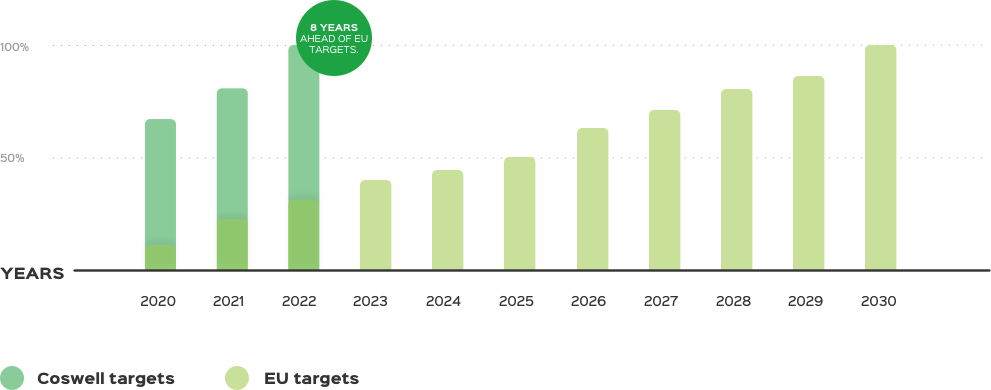
100% recyclable packaging*
Another important target achieved by Coswell was the reduction of 680 tons of fossil-based plastic by replacing it with organic or recycled plastic.
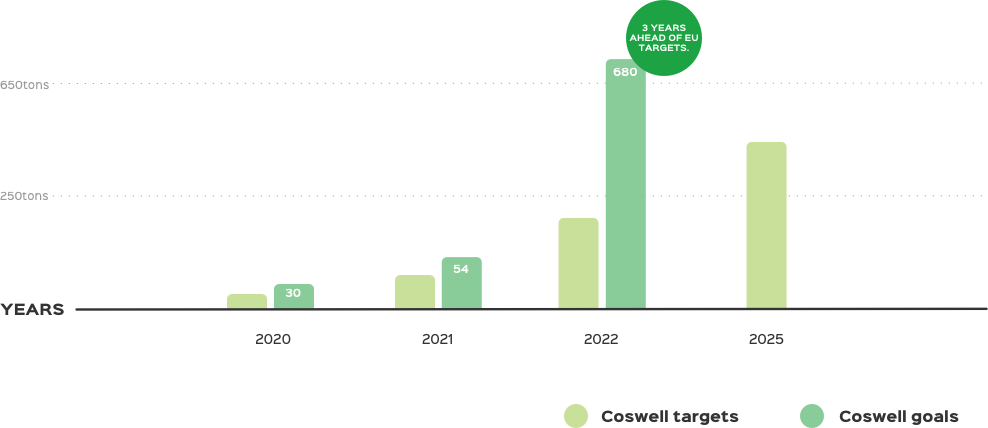
Coswell's goal is to significantly reduce CO2 emissions.
Emissions were reduced by 780 tons in 2022, thus exceeding the target set for 2025.
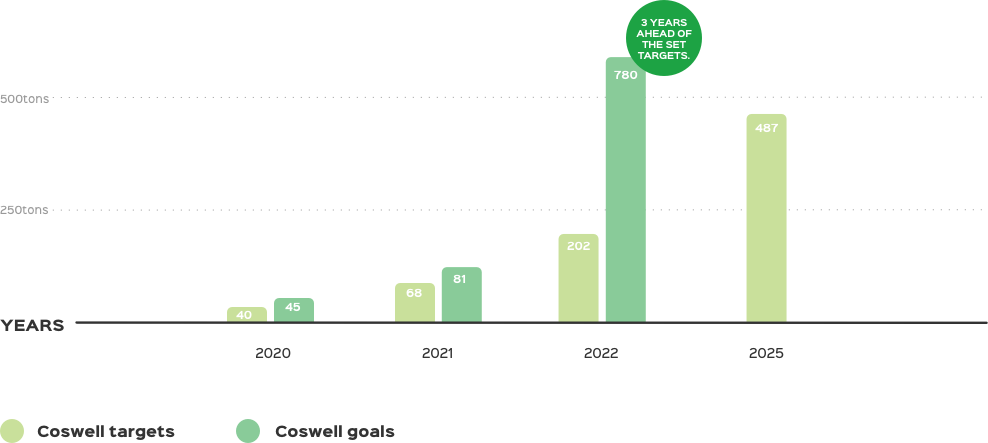
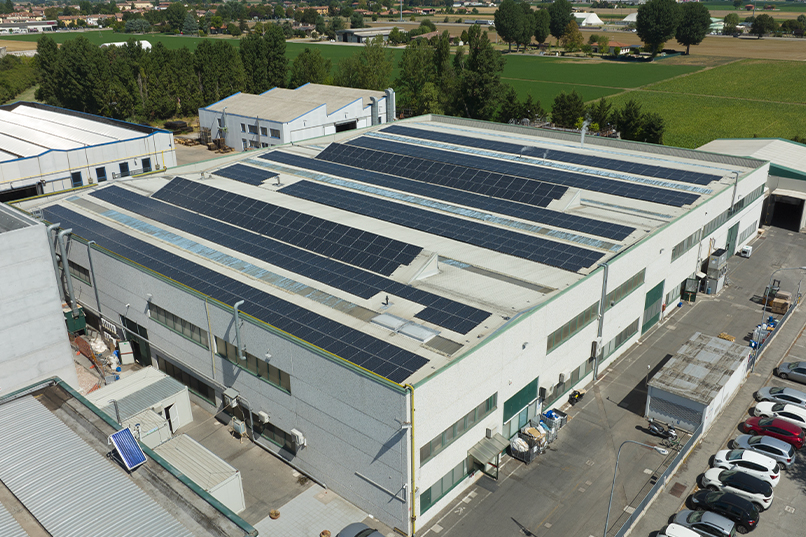
The Castello d'Argile (Bologna) plant, where L'Angelica, Biorepair, Blanx and Bionsen brands are produced, is an example of the path taken by the Group: thanks to the massive installation of photovoltaic systems and a cutting-edge cogeneration system, 100% of its energy needs derive from self-produced, green energy. 794 high-performance panels have been installed in the Castello d'Argile plant and they are capable of covering 55% of the factory needs during peak demand periods. The cogeneration plant (powered by methane gas) produces 160 kWh in support of the photovoltaic system and provides energy in less sunny conditions.
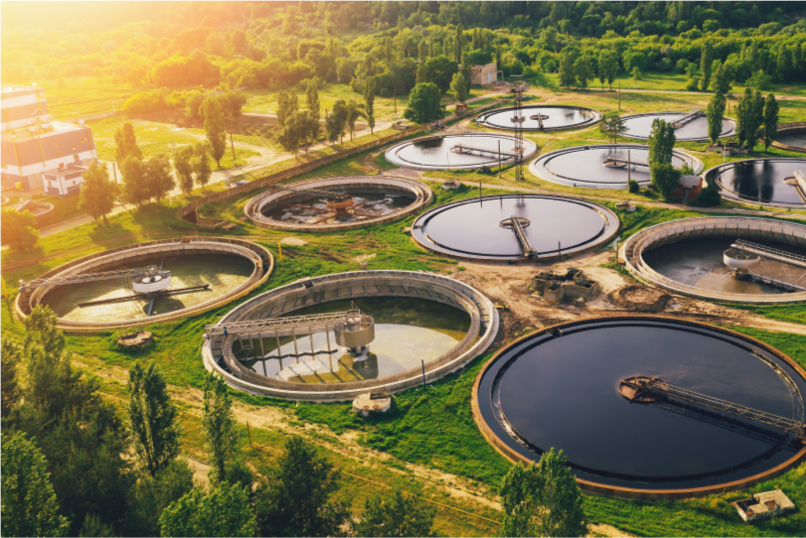
Designed to optimize our specific needs, our new water purifier has been adopted in our production plant and employed in the treatment of all industrial wastewater. The biological treatment of industrial wastewater is carried out by means of chemical-physical processes which make organic and inorganic pollutants insoluble and therefore separable from the aqueous part. The water thus purified can be conveyed downstream to the council sewage treatment plant, while the residual sludge is dewatered and concentrated in order to facilitate its transportation and disposal. This innovative procedure has enabled us to reduce discharge by more than 1,500 MC, the equivalent of 10,000 bathtubs filled to the brim.

As a part of the ECOswell program, L'Angelica is keeping faith with its own nature: our all-round commitment is the use of recycled and recyclable plastic (100%), FSC paper (from controlled forests) for all packaging and outer packaging. In the specific:
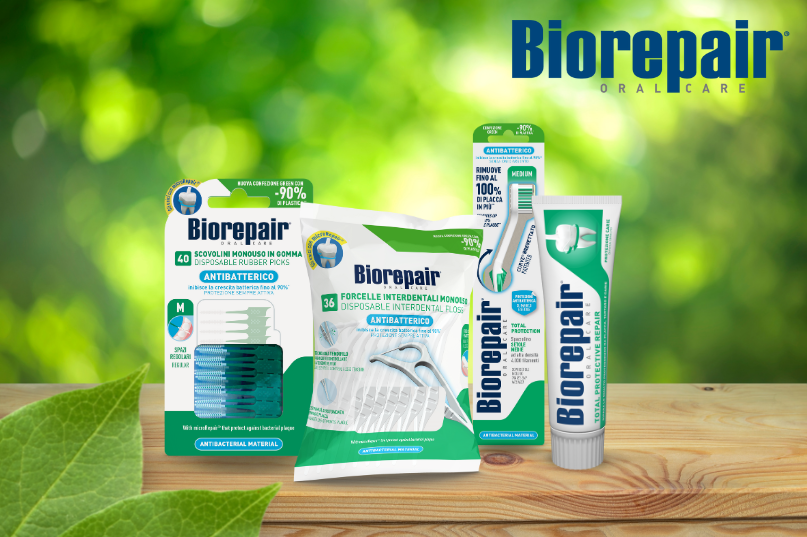
Thanks to ECOSWELL, Biorepair uses 100% recyclable plastic tubes. Moreover, starting from May 2022, all Biorepair Accessories have recyclable paper cases and 90% less plastic than the traditional packaging in use throughout the rest of the market.
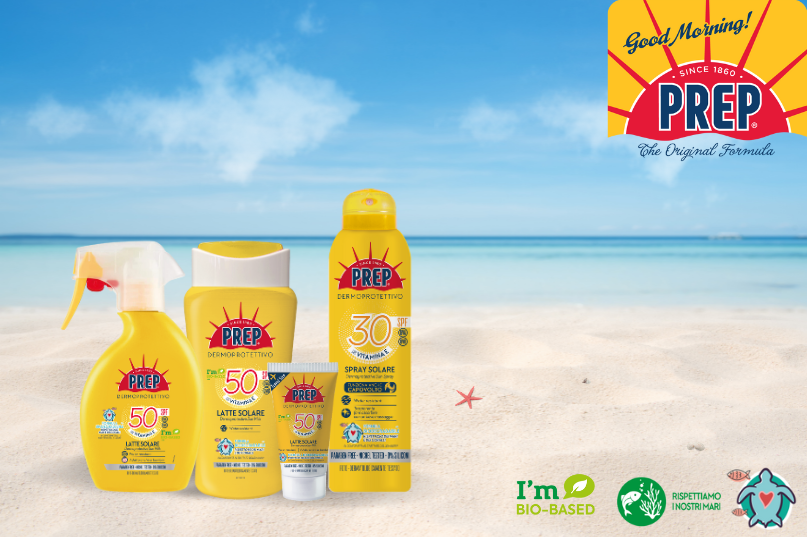
All Prep sunscreen bottles are made from Bioplastic. Bioplastic derives from renewable raw materials, in the specific from sugarcane processing. During its life cycle, sugarcane helps reduce pollution by capturing CO2 from the atmosphere and significantly cuts back on environmental impact. PREP's product packaging is equipped with a pre-cut and peel off sleeve, which makes it easier for the consumer to recycle. In addition, the PREP sunscreen line boasts a fully recyclable bottle as well as a truly innovative formula: we have eliminated harmful substances, such as Octinoxate and Oxybenzone, from our biodegradable filters. The filters have been tested for biodegradability in accordance with Regulation 1272/2008 and comply with the Hawaii Treaty.
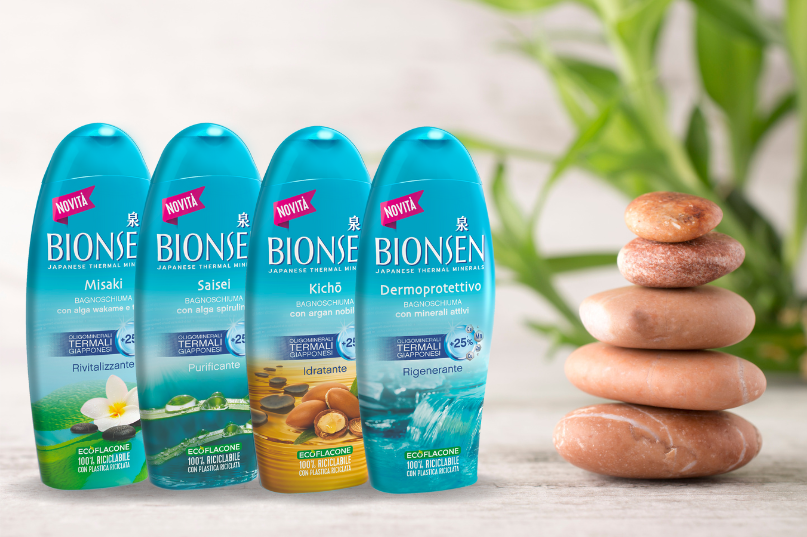
Bionsen bottles, made from 100% recyclable recycled plastic, provided a reduction of 210 tons of virgin plastic equivalent to 315 tons of CO2 in 2022. To enable the best disposal, Bionsen packages are also equipped with perforated and dotted sleeves, which makes them lighter by 1 gram each: this allows for a reduction of one ton of plastic per million pieces produced.